 According to sources at Subjectpoker.com, both Phil Ivey and David Benyamine have, over the course of the past two to three years, borrowed large amounts of money from Full Tilt Poker.
According to sources at Subjectpoker.com, both Phil Ivey and David Benyamine have, over the course of the past two to three years, borrowed large amounts of money from Full Tilt Poker.
Benyamine’s accounts are the seemingly less harmful of the two– while he still owes money to FTP, the remarkable thing is that he was overheard talking on the phone while in Vegas, asking about money for his WSOP buy-ins (Full Tilt was sponsoring him before they went belly-up), and that in early May, he was able to withdraw money (over 5,000 dollars) from his FTP account for travel expenses. If Full Tilt was in a bind and could not transfer money through the site by the time the WSOP rolled around, how was Benyamine getting his money? It seems that a lot of what happens at Full Tilt is going on behind the scenes, away from the prying eyes of customers (and accountants).
According to Ivey’s account records, he has borrowed $11 million from Full Tilt Poker and has yet to repay about $6 million of it. How many players accounts could be settled with that returned money? What did Ivey hope to gain by suing Full Tilt about the frozen accounts? Consider Full Tilt Poker’s statement after Phil Ivey filed his lawsuit against FTP (and hastily withdrew– and no wonder!):
- “In an effort to further enrich himself at the expense of others, Mr. Ivey appears to have timed his lawsuit to thwart pending deals with several parties that would put money back in players’ pockets. In fact, Mr. Ivey has been invited — and has declined — to take actions that could assist the company in these efforts, including paying back a large sum of money he owes the site.”
Is it possible that Full Tilt is tired of being on the hook for their economic disaster, and they’re leaking information about Ivey and Benyamine to give the public someone else to hate? Well, that’s entirely possible (and not unlikely, actually). The public, however, doesn’t seem to be taken aback so much by the fact that the players were loaned extraordinary amounts of money, but that Full Tilt let them. Likewise, Benyamine isn’t being blamed for withdrawing money from his account– instead, FTP customers are wondering why he can take money out of his US-based account when no one else can.
What’s really worrisome about this (apart from the fact that Full Tilt has no problem throwing around millions of dollars to its select players but can’t seem to manage paying back its customers, whose accounts are still frozen) is that this may be an indication of how Full Tilt does business on a greater scale. How many players in the rest of Team Full Tilt (there are thirteen players besides Ivey) or among the Full Tilt Pros (Benyamine is one of the 159) are getting the same kinds of deals that these two are? One irate former Full Tilt player, upon learning of these developments, has expressed frustration that Full Tilt has been “an ATM that certain pros were able to access at will.” More and more, it seems as thought Full Tilt is not in a position where they can’t pay people back, but one where they won’t pay people back.
The class action lawsuit against Full Tilt names Phil Ivey and other members of Team Full Tilt and Full Tilt Pros as partial owners of Full Tilt, and claims that they are in part responsible for the actions of the company. Regardless of whether or not this is true, Ivey and other pros played fast and loose with Full Tilt Poker, and while these transfers and loans may well not be illegal, to a poker-loving public that doesn’t have millions of dollars to throw around and is still waiting to see their money, these actions certainly seem a little dicey. To access all the details from subjectpoker’s investigation, visit the following URL:
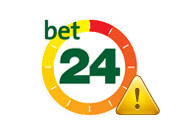 Bet24, the online sportsbooking and poker site, has announced Monday that they were the target of a security breach. The company sent out an email to its current and past customers letting them know that some of their personal information may have been compromised. While this is becoming more and more common of late, especially with the Sony scandal a few months ago, what’s particularly unique about the case with Bet24 is that they were hacked in December 2009… and they’re just now telling customers about it, some 19 months later.
Bet24, the online sportsbooking and poker site, has announced Monday that they were the target of a security breach. The company sent out an email to its current and past customers letting them know that some of their personal information may have been compromised. While this is becoming more and more common of late, especially with the Sony scandal a few months ago, what’s particularly unique about the case with Bet24 is that they were hacked in December 2009… and they’re just now telling customers about it, some 19 months later.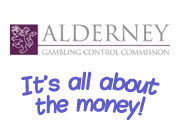 Full Tilt lawyer Martin Heslop began today’s hearing by requesting a private hearing to determine whether the AGCC would adjourn the proceedings until later. Although he claims that this was not due to Full Tilt’s attempts to hide anything from their players, but rather to respect the delicacy of the situation with the mysterious, unnamed buyer/investor, especially given the media frenzy surrounding this case, a lot of people are skeptical. After Heslop’s request, professional poker player Harry Demetriou stood up and shouted, “What about the interests of the players? Why are you protecting this corrupt company?” He was removed from the courtroom, but not before many other people in the audience could mirror their support of his statement.
Full Tilt lawyer Martin Heslop began today’s hearing by requesting a private hearing to determine whether the AGCC would adjourn the proceedings until later. Although he claims that this was not due to Full Tilt’s attempts to hide anything from their players, but rather to respect the delicacy of the situation with the mysterious, unnamed buyer/investor, especially given the media frenzy surrounding this case, a lot of people are skeptical. After Heslop’s request, professional poker player Harry Demetriou stood up and shouted, “What about the interests of the players? Why are you protecting this corrupt company?” He was removed from the courtroom, but not before many other people in the audience could mirror their support of his statement.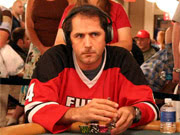
 If the world of online poker were an ocean, Full Tilt Poker would be comparable to the Titanic, and no matter how many mysterious European investors come along, tossing out life preservers, the former Full Tilt customers seem to see only two options: jump ship and head for land, or go down with the ship (which is still holding all of their money).
If the world of online poker were an ocean, Full Tilt Poker would be comparable to the Titanic, and no matter how many mysterious European investors come along, tossing out life preservers, the former Full Tilt customers seem to see only two options: jump ship and head for land, or go down with the ship (which is still holding all of their money).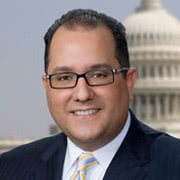 According to Jeff Ifrah, a lawyer for Full Tilt Poker, the investors have already entered into discussion with both the AGCC and Arjel and are likely to reach a settlement with the United States Department of Justice as well.
According to Jeff Ifrah, a lawyer for Full Tilt Poker, the investors have already entered into discussion with both the AGCC and Arjel and are likely to reach a settlement with the United States Department of Justice as well.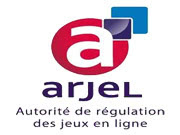 While Full Tilt Poker scrambled to complete a deal with its mysterious “European investors” in time to save the company from further damage, the site failed to have any success in solving their problems, with negotiations with the Alderney Gaming Control Commission (AGCC) ending in a lot of hypothetical discussions.
While Full Tilt Poker scrambled to complete a deal with its mysterious “European investors” in time to save the company from further damage, the site failed to have any success in solving their problems, with negotiations with the Alderney Gaming Control Commission (AGCC) ending in a lot of hypothetical discussions. Several former US players at Full Tilt Poker have grown tired of waiting for their funds to be returned to them and decided to take matters into their own hands by filing a class action lawsuit with the US District Court South District of New York, claiming Full Tilt Poker as the defendant. The lawsuit demands not only a return of the plaintiffs’ money, but also damages for suffering that they have endured at the hands of Full Tilt’s carelessness.
Several former US players at Full Tilt Poker have grown tired of waiting for their funds to be returned to them and decided to take matters into their own hands by filing a class action lawsuit with the US District Court South District of New York, claiming Full Tilt Poker as the defendant. The lawsuit demands not only a return of the plaintiffs’ money, but also damages for suffering that they have endured at the hands of Full Tilt’s carelessness. Within days of the complete
Within days of the complete 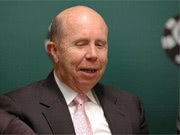 American poker star Jack Binion is rumoured to be the newest Full Tilt Poker investor, which could potentially work out in everyone’s favour, if the circumstances play out right. While sources state that Binion has been to Ireland to negotiate the acquisition of the company, nothing is certain at the moment.
American poker star Jack Binion is rumoured to be the newest Full Tilt Poker investor, which could potentially work out in everyone’s favour, if the circumstances play out right. While sources state that Binion has been to Ireland to negotiate the acquisition of the company, nothing is certain at the moment. 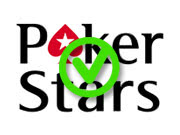 PokerStars, which has been at the center of the poker media spotlight since last April’s Black Friday, has released a public statement about Full Tilt’s recent license suspension. Full Tilt Poker had its licence revoked on June 29th by the Alderney Gambling Control Commission (AGCC) and has been barred from accepting new players, accepting money from players, allowing players to withdraw funds, or allowing players to take part in any kind of poker game on the site (the AGCC was pretty specific that Full Tilt Poker isn’t going to be doing much of anything for quite some time). Although the Full Tilt website states that the site is merely down for maintenance, the site will not be back up until the net hearing, scheduled for late July.
PokerStars, which has been at the center of the poker media spotlight since last April’s Black Friday, has released a public statement about Full Tilt’s recent license suspension. Full Tilt Poker had its licence revoked on June 29th by the Alderney Gambling Control Commission (AGCC) and has been barred from accepting new players, accepting money from players, allowing players to withdraw funds, or allowing players to take part in any kind of poker game on the site (the AGCC was pretty specific that Full Tilt Poker isn’t going to be doing much of anything for quite some time). Although the Full Tilt website states that the site is merely down for maintenance, the site will not be back up until the net hearing, scheduled for late July.